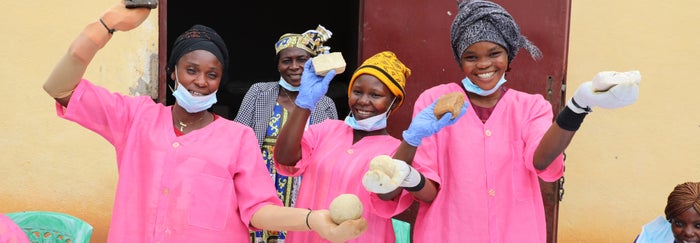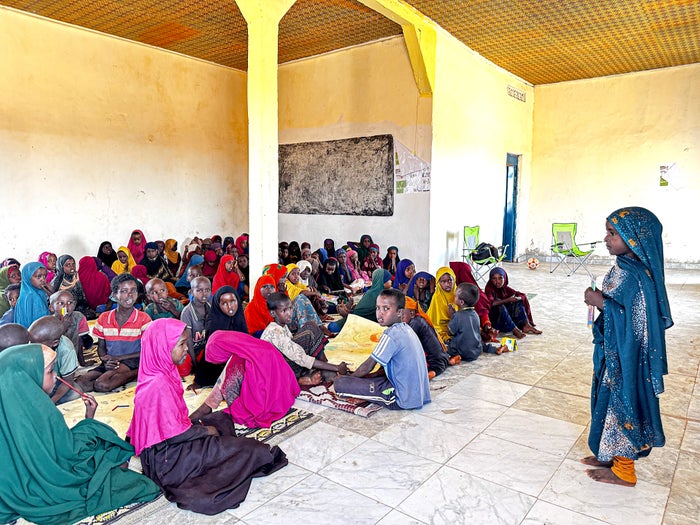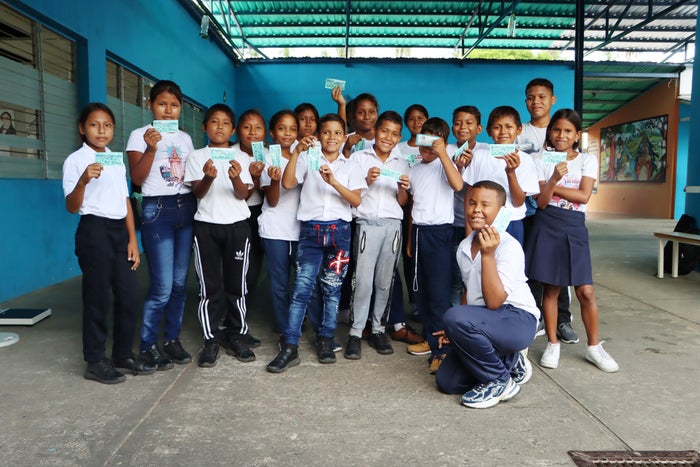Let us introduce you to an exceptional humanitarian, growing up in a refugee camp, she now helps to save lives, delivering babies in the most dangerous places.
"Hello, my name is Paula.
I'm a South Sudanese and I work here in this Transit Center (TC). I have worked at this World Vision emergency project for one year.
I'm a registered midwife and I have a passion for midwifery.
I grew up seeing my grandmother helping deliver babies. And I would see the joy that she would have after the mothers given birth, like it would be a celebration at home.
Grandmother would say, 'It feels so good to see someone bringing out another life on earth.'
It inspired me a lot. It made me really want to pursue it and do it with all of my heart. I have passion for midwifery.
All of these years I've worked, I've never, never regretted it."
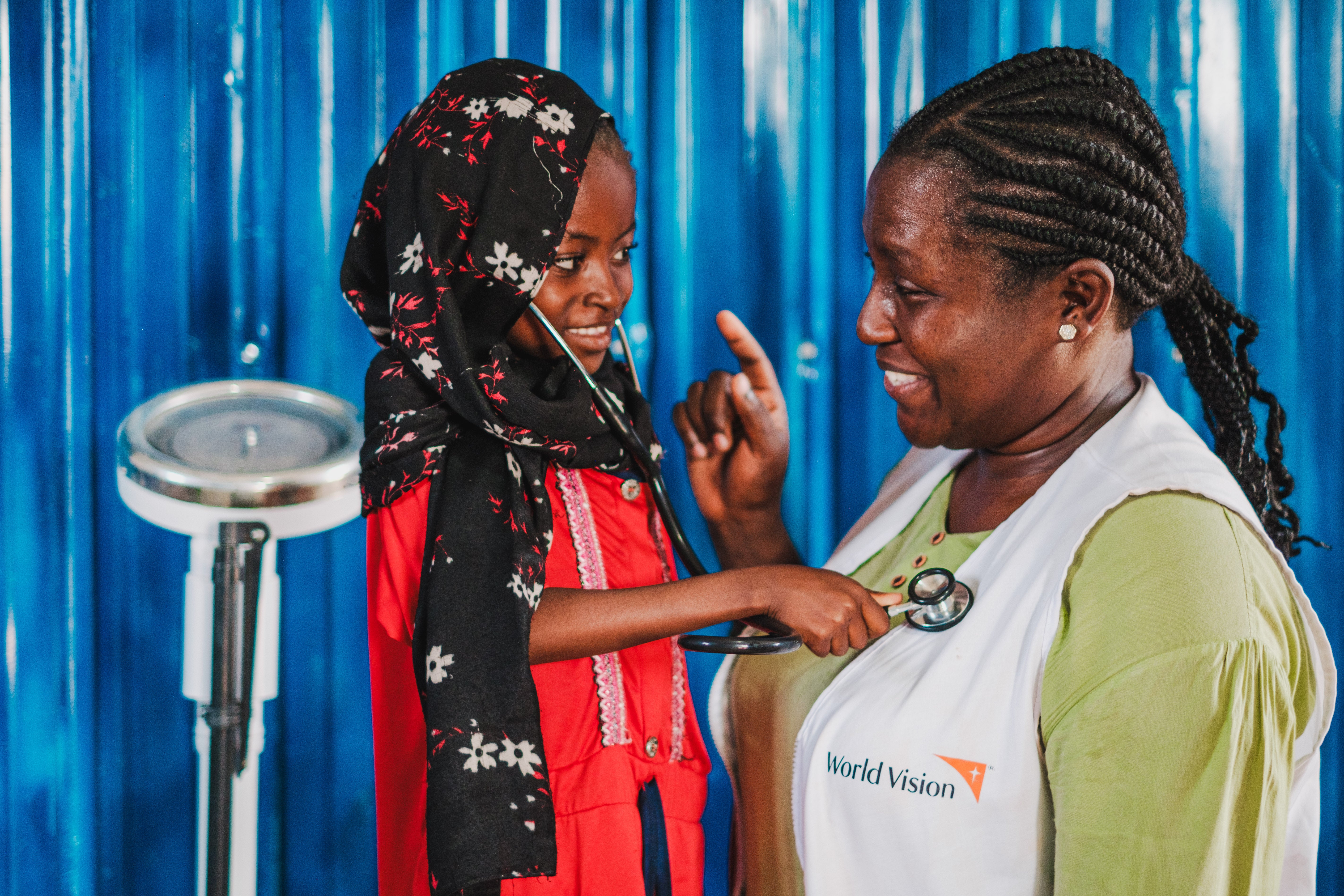
Paula lets a young refugee girl with her own big dream practice with the stethoscope. Paula was once a young girl growing up in a camp, she knows the power of inspiring the next generation.
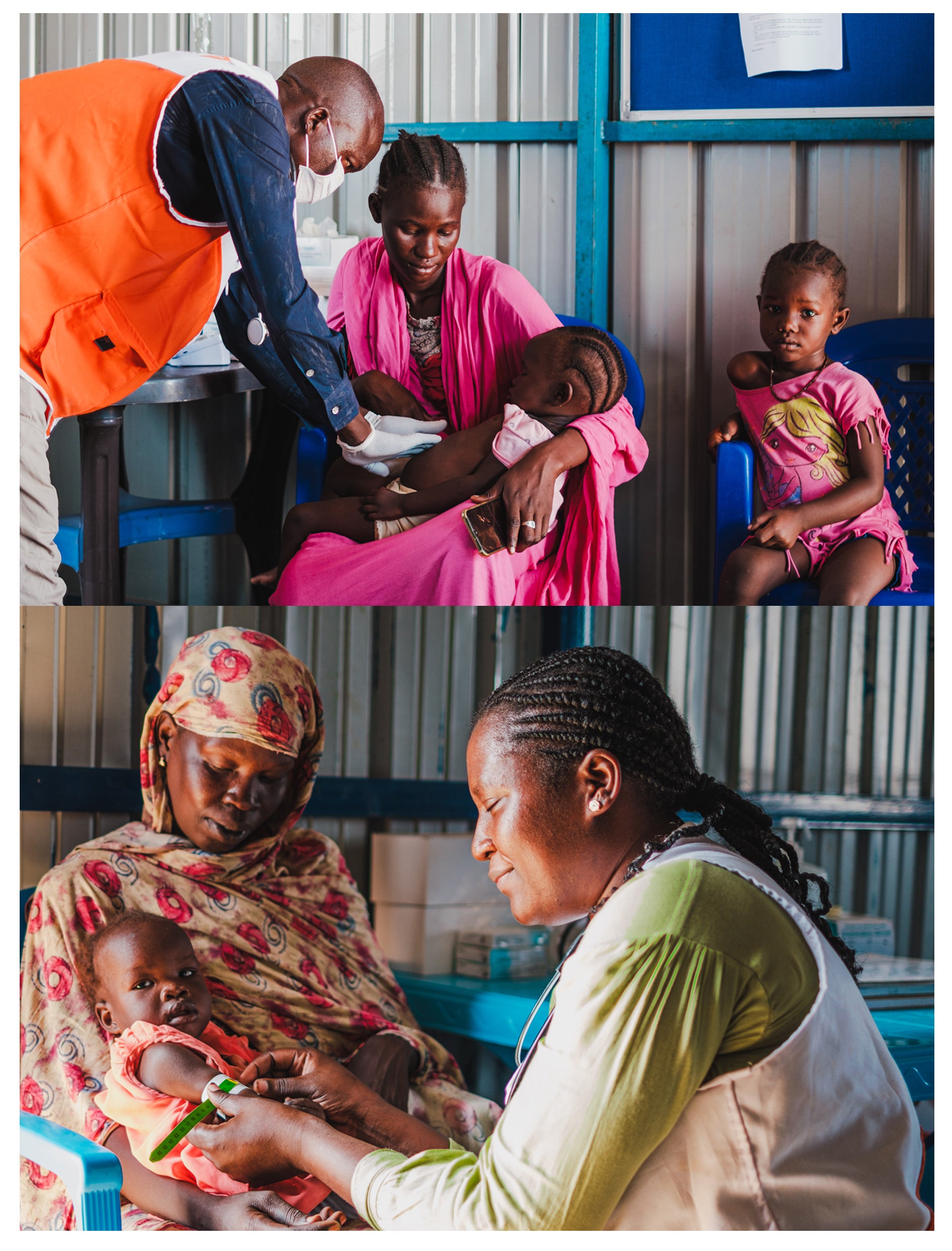
The health centre teams deliver babies, address critical health issues but also monitor children for malnutrition and help with common ailments such as malaria and diarrhea.
Andre Guardiola
"Right now, this is dry season, and the temperature here can go up to 40 degrees.
So, in this Transit Centre (TC) at this particular station in a day we can have like a 20 to 30 mothers.
Pregnant women come for checkups, they need the medical attention.
And also, sometimes those who are in labour who would like to give birth, we would have like two of them or three every day at the facility.
So usually when they come, the day is usually unpredictable. Sometimes you get emergencies, someone might have collapsed.
So, for us in particular (World Vision), sometimes we can go a day without having a baby being born here. Sometimes in a week we would have about three or four or five births.
But sometimes we even have like over ten births in a week."
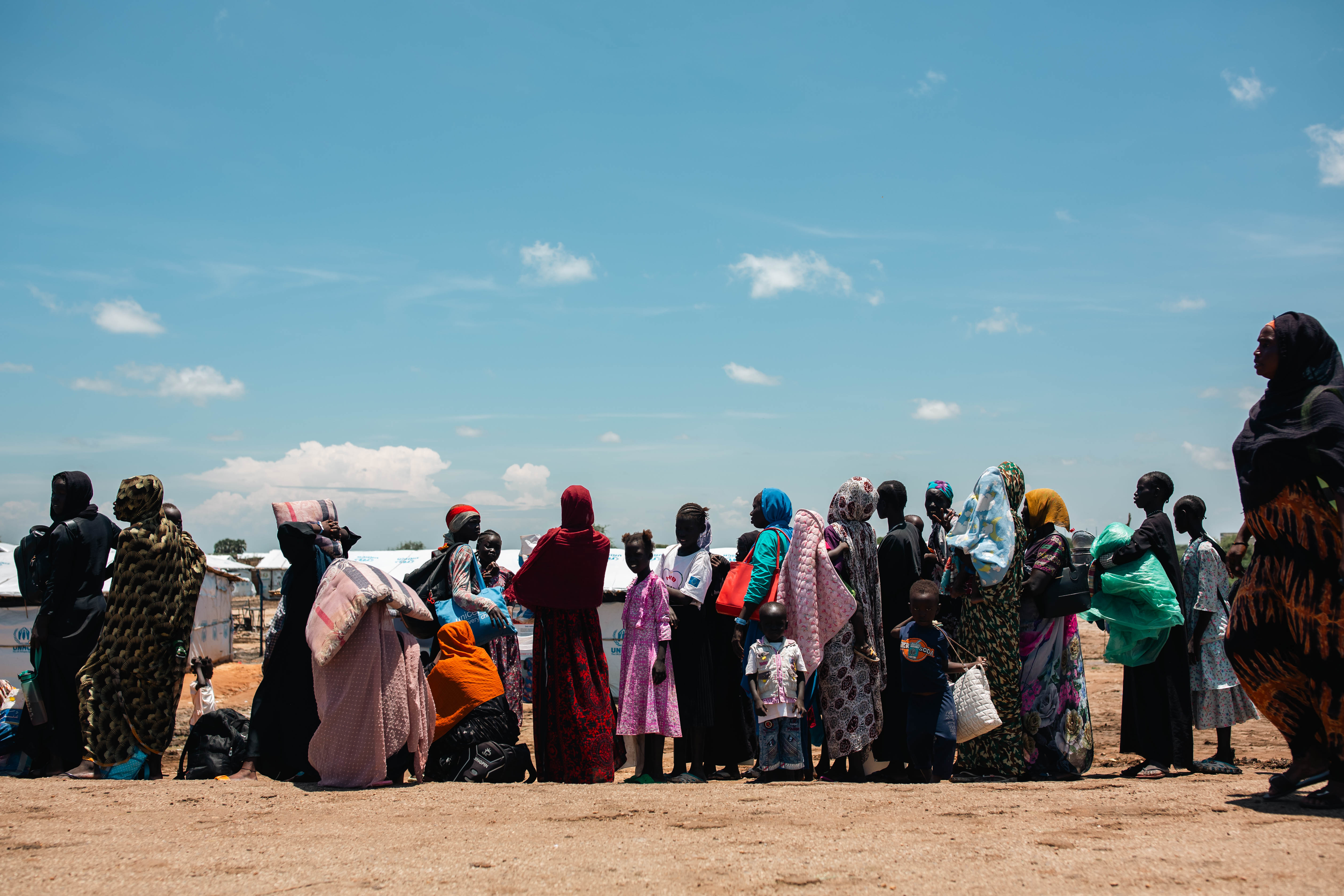
Refugees and returnees wait outside of a Transit Centre having just alighted from a truck. At the Renk transit center in South Sudan, over 12,500 displaced people have arrived seeking refuge and safety. Of these, more than 6,600 are women and children, while approximately 5,800 are men and boys.
Tim Swanston
At the Renk transit center in South Sudan, over 12,500 displaced people have arrived seeking refuge and safety. Of these, more than 6,600 are women and children, while approximately 5,800 are men and boys.
The conditions at the center are extremely difficult, with limited access to food, clean water, and medical care. This situation has led to a significant increase in humanitarian needs.
World Vision has deployed a comprehensive response to address the most urgent needs. Emergency food distributions are underway to alleviate food insecurity, and water access points have been set up along with hygiene kits to prevent the spread of diseases related to poor sanitation.
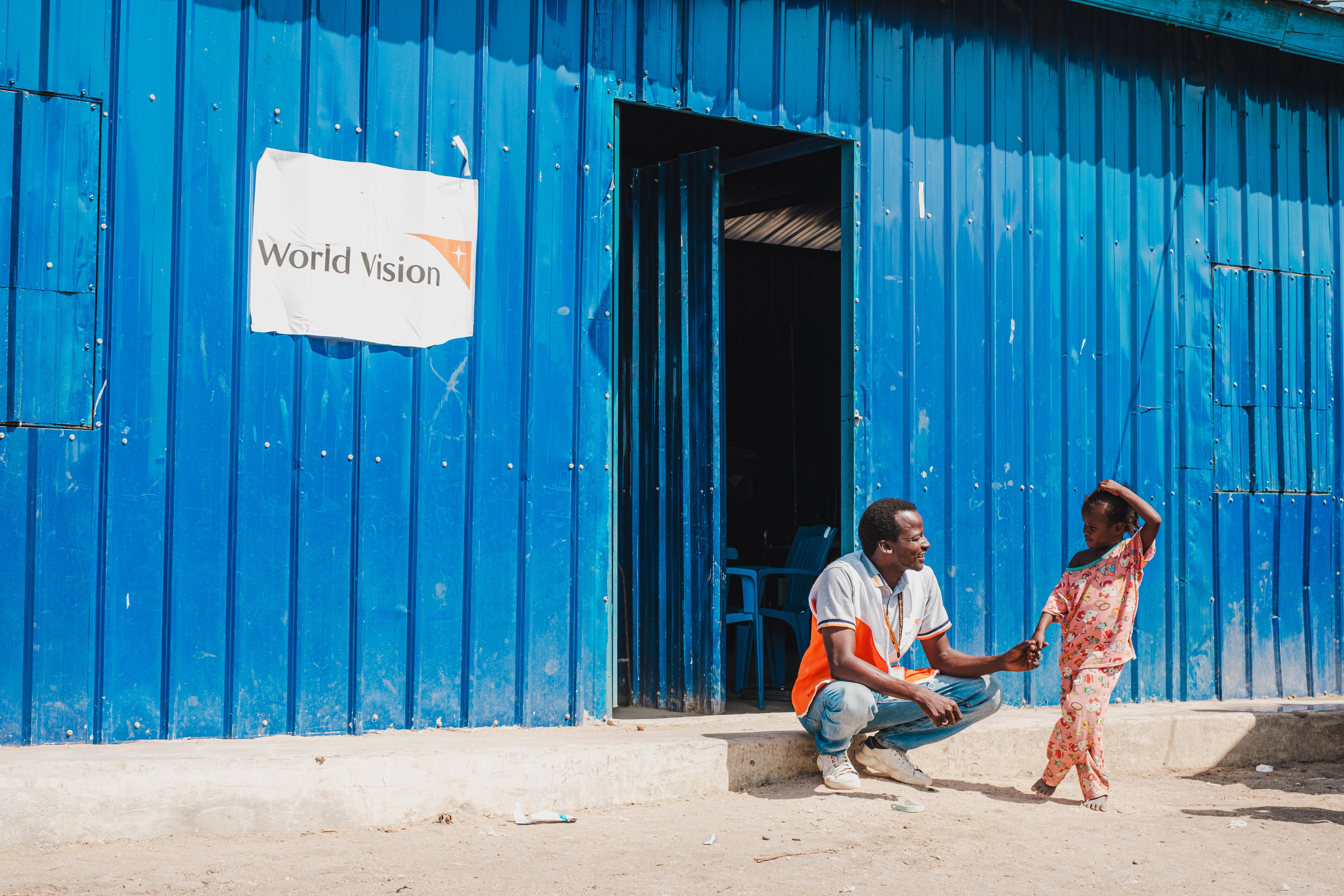
The transit center also provides safe spaces for children. Providing emotional support is critical to helping children survive. A safe place to 'be' and participate in recreational activities can help them cope with the challenges they are facing.
Andre Guardiola
A key component of the response is the medical care provided through World Vision's health center.
This facility offers primary health care for the treatment of common diseases such as respiratory infections and gastrointestinal issues, which are prevalent in displacement settings. Prenatal and postnatal care is also being provided to pregnant and lactating women, helping to reduce risks to maternal and child health in such vulnerable conditions. Additionally, psychological support is being offered to both children and adults affected by the trauma of displacement.
The transit center also provides safe spaces for children. Providing emotional support is critical to helping children survive.
A safe place to 'be' and participate in recreational activities can help them cope with the challenges they are facing.
Essential items such as blankets, cooking utensils, and materials for temporary shelters are being distributed, contributing to improving living conditions for the displaced.
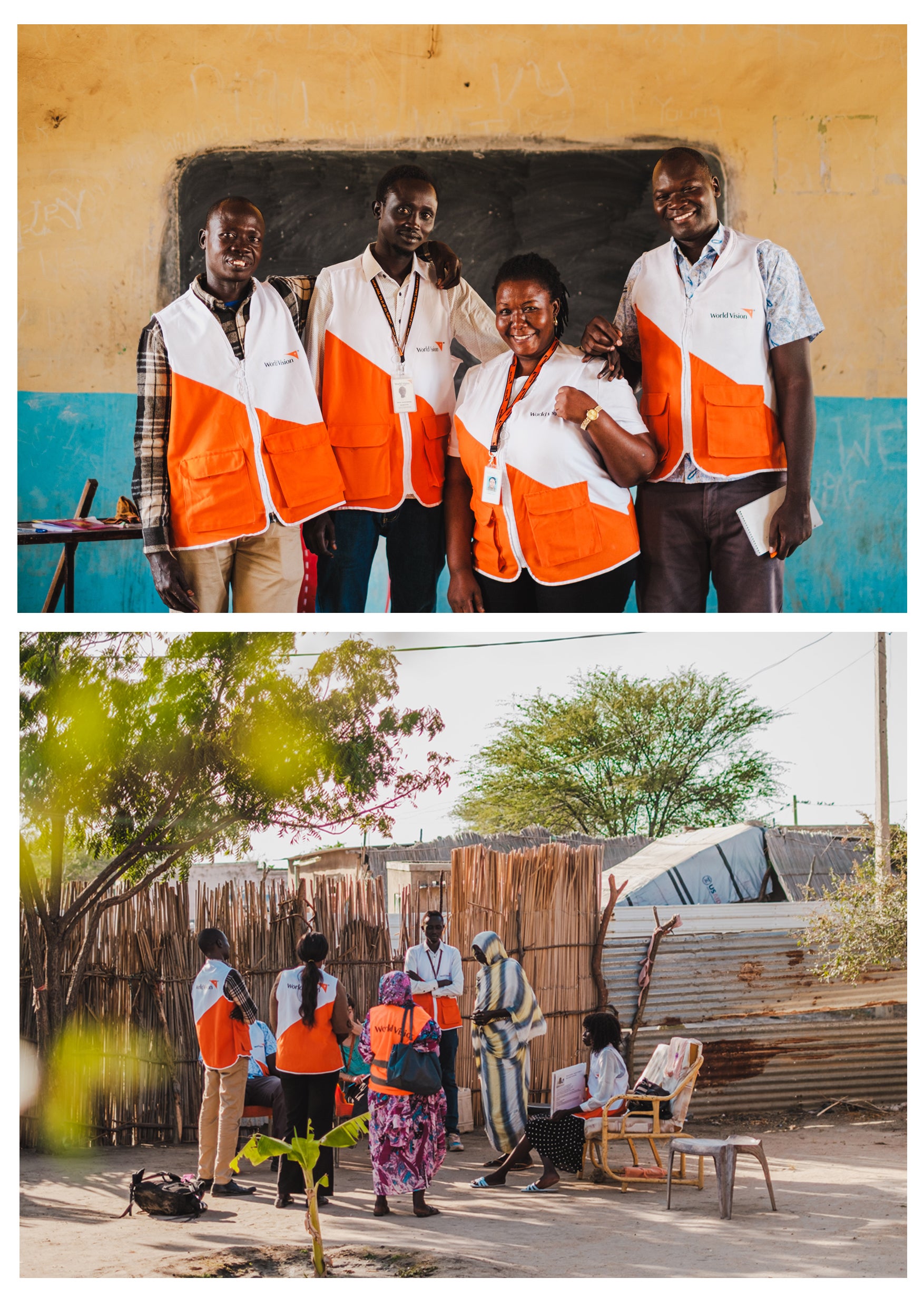
The dream WASH team out in the community. From Left to right: Abraham Majok- WASH Officer, Jacob Dhieu- WASH Coordinator, Fahima Brahani- Hygiene Coordinator, Fahima Brahani, Hygiene Coordinator World Vision South Sudan Renk, UpperNile State and Justin Elia Kosa- Area Program Manager
Andre Guardiola
Transit Centre staff strive to provide essential care to host refugees and returnee populations. Educational institutions and local groups assist in housing the swelling population but they face significant challenges related to delivering access to basic services, especially sanitation and health.
Here are some of the key water, sanitation, and hygiene (WASH) initiatives the team deliver at the Renk Transit Centre:
- Construction of latrines
- Distribution of hygiene kits
- Establishment of school health clubs
- Installing handwashing stations
- Providing buckets for storing drinking water
- Providing menstrual hygiene kits are provided to ensure girls' continued education
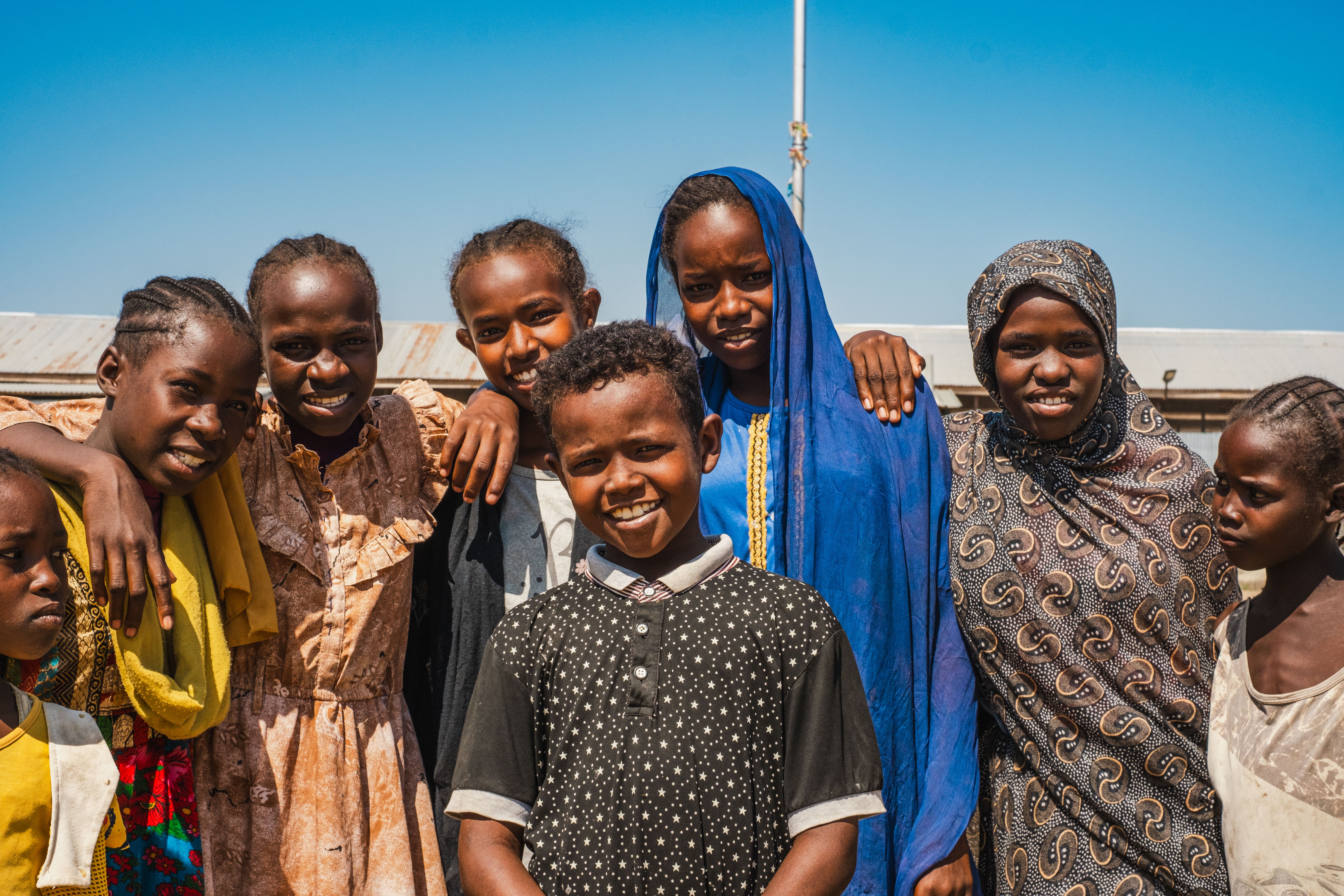
World Vision believes in children. On borders, in refugee camps and in conflict zones, we must protect children and their futures!
Andre Guardiola
The situation in Sudan and the borders surrounding remains critical, and ongoing efforts are required to ensure the well-being of those affected by the conflict. The images captured at the Renk Transit Centre reflect both the hardships faced by these people and the importance of humanitarian intervention in providing support during this time of need.
Across the world, there are conflicts and emergencies detrimentally affecting the lives of children and their futures.
Despite the complexities and dangers of many locations, we're there, helping children survive, recover and build a future.



